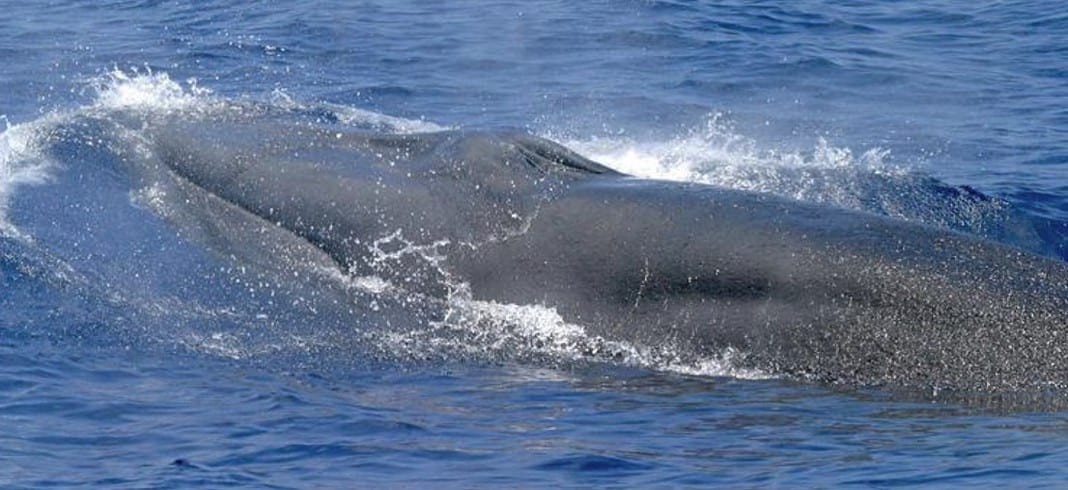The US government is seeking comments on a petition filed by a group of environmental organizations to establish a speed limit for the habitat of the endangered Rice’s whale.
In May 2021, the Natural Resources Defense Council, Healthy Gulf, Center for Biological Diversity, Defenders of Wildlife, Earthjustice and the New England Aquarium submitted a petition to establish a year-round, mandatory 10-knot speed limit and other vessel-related regulations within the core habitat of the Gulf of Mexico whale, also known as Rice’s whale, south of the Florida panhandle.
In a notice issued last week, the US National Oceanic and Atmospheric Administration is calling for comments on the petition “and will consider all comments and available information when determining whether to accept the petition and proceed with the suggested rulemaking.”
In a statement issued at the time of the petition’s filing two years ago, the groups said:
“With an estimated 50 individuals remaining, the immediate adoption of these measures is critical to the whales’ survival.
“Fisheries Service scientists published a paper in January recognizing the Gulf of Mexico whale as a unique species. In the wake of that paper, some scientists have begun dubbing it ‘America’s whale’ since it is the only great whale known to live entirely off the U.S. coast. The species’ small population and the threats it faces in the industrialized waters of the Gulf of Mexico make it one of the most endangered species of whales on earth.”
Michael Jasny, director of NRDC’s Marine Mammal Protection Project, said in 2021:
“One of the rarest, most endangered whales on the planet is in our backyard, and we have a responsibility to save it. Slowing down ships in the whales’ habitat is more than common sense. It’s basic human decency. It’s what we should do for a neighbor.”
The species is experiencing more injury and death from vessel strikes than it can currently withstand, with at least one whale known to have died and others showing signs of injury, the groups asserted. The whales spend much of their lives within the draft depths of most commercial vessels, particularly at night when they are resting just beneath the surface. This makes them extremely vulnerable to deadly collisions with fast-moving ships.
In its notice issued last week, NOAA said:
“We are soliciting information from the public, governmental agencies, tribes, the scientific community, industry, environmental entities, and any other interested parties concerning the petitioned action. In particular, we request information and comments on: (1) the advisability of and need for regulations to establish a ‘Vessel Slowdown Zone;’ (2) the geographic scope of any such regulations; (3) alternative management options for regulating vessel interactions with Rice’s whales, including but not limited to the options in the petition; (4) scientific and commercial information regarding the effects of vessels on Rice’s whales, or other similar species, and their habitat; (5) information regarding potential economic effects of regulating vessel interactions; and (6) any additional, relevant information that NMFS should consider.”
Comments can be submitted either electronically or via regular mail. Electronic comments will need to go via the Federal e-Rulemaking Portal, according to NOAA:
“Go to https://www.regulations.gov and enter NOAA-NMFS-2023-0027. Click on the ‘Comment’ icon and complete the required fields. Enter or attach your comments.
Paper comments can be mailed to:
Assistant Regional Administrator, Protected Resources Division, NMFS, Southeast Regional Office, 263 13th Avenue South, St. Petersburg, FL 33701.

